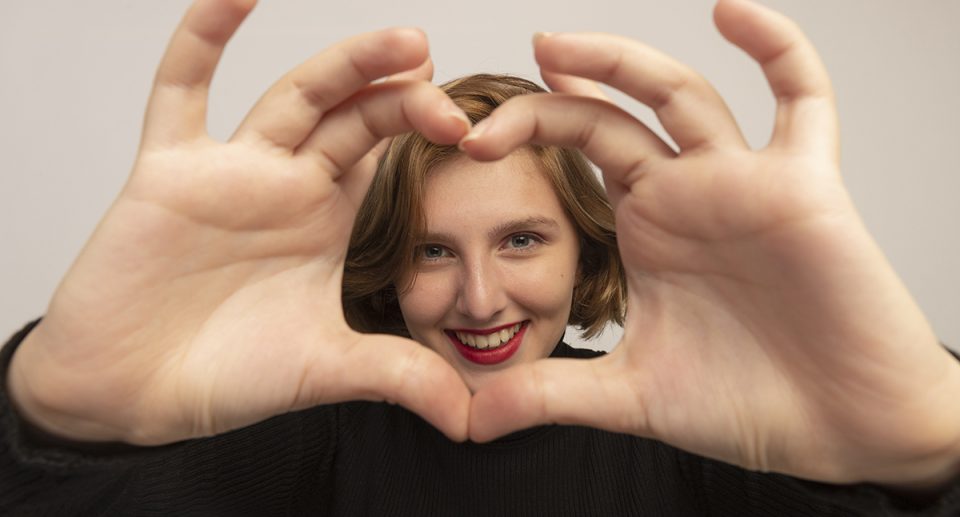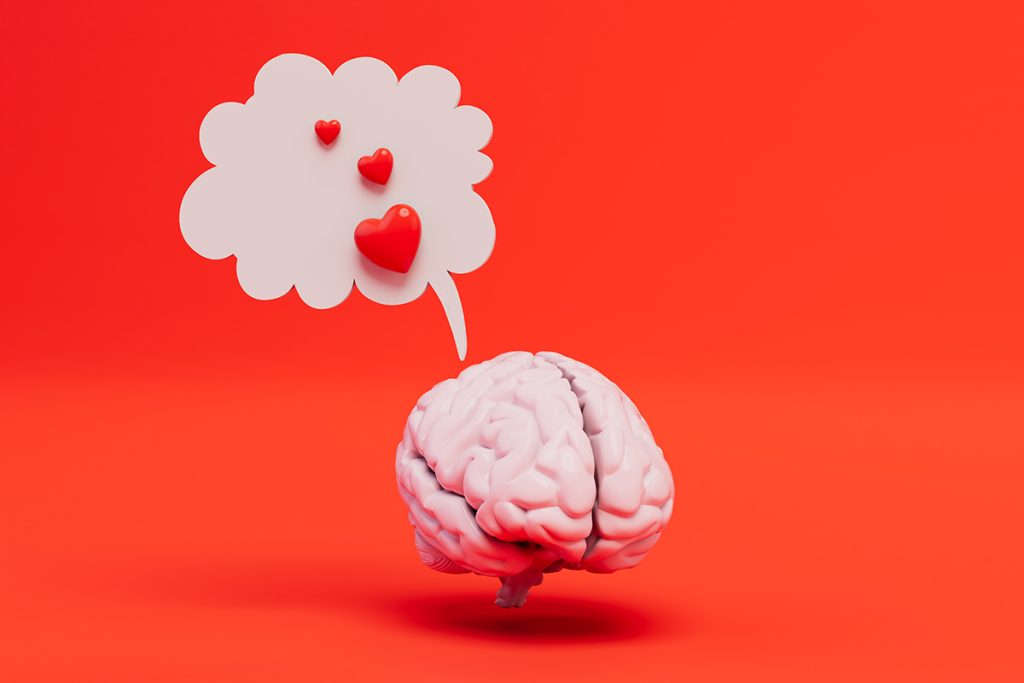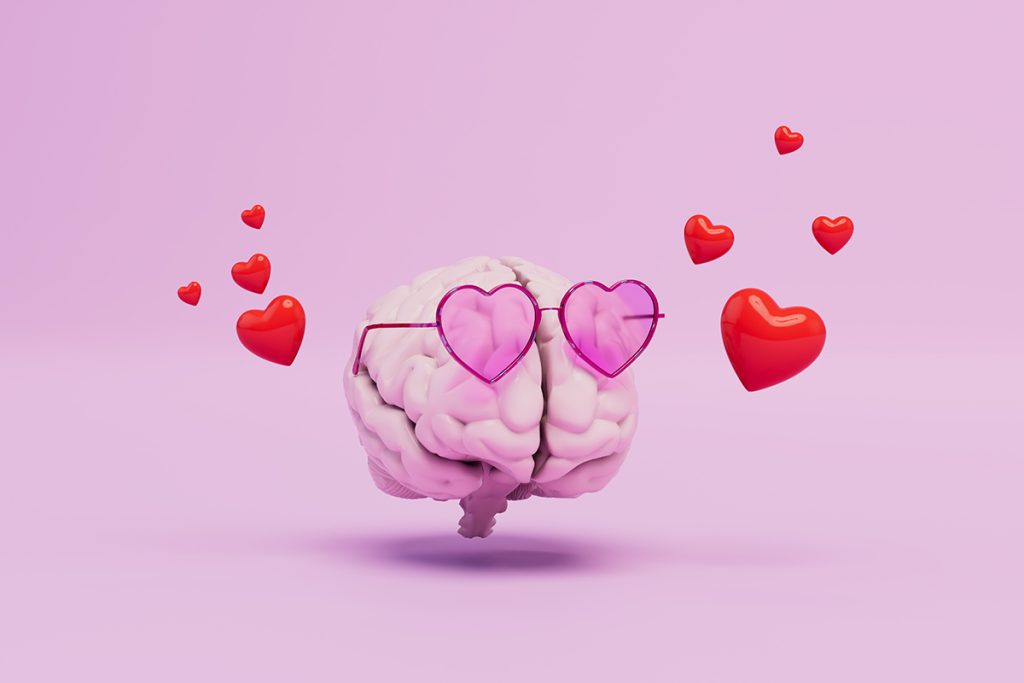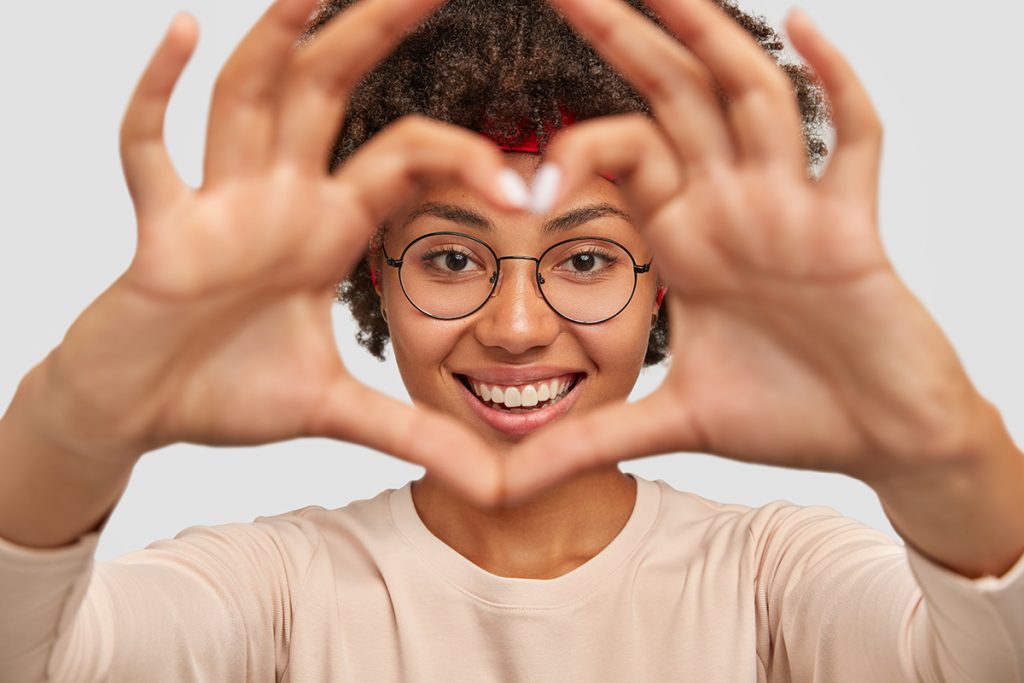This is what love does to our brain

How is falling in love being processed in our brain? Are we slaves to our hormones and neurotransmitters if we keep longing for the one who doesn’t see us? No, it is we ourselves who feed the infatuation by always seeking contact. The only remedy for this is simply to stay away!
When it comes to falling in love, our hormones and neurotransmitters get into a lot of movement. Scientists have even discovered special love chemicals that contribute to the feeling of bonding that is so important in true love. For example, research in mice shows that a higher concentration of the hormone vasopressin in their brains contributes to partner bonding.

Cuddle hormones
Another hormone, oxytocin, or ‘the cuddle hormone’, has also been found to stimulate feelings of love. Among other things, it is released in the brains of pregnant women when they are about to give birth to their child. This directly evokes feelings of bonding and protection.
This same oxytocin plays a role in our sexuality, since the oxytocin levels increase dramatically during orgasm. Therefore it is widely believed that oxytocin is ‘the hormone of the long-term relationship’. Because as soon as we are together with our partner, this hormone is being released in our brains. And thus brings us feelings of peace, calm and security. As a result, we become more attached to our partner.
But wait, there is more than this ‘cuddle hormone’ alone. Since there is another substance that contributes to partner bonding too: the neurotransmitter endorphins. Of which there are different types that give us the harmonious feeling that everything is okay around that partner.
So, only with her or him around you does our brain produce these endorphins. And this makes us feel peaceful and safe. But be aware: endorphins are addictive, just like alcohol. Because of this, we want that good feeling over and over again. So we keep on looking for the person who gives us that feeling.

Passion burns out
But what does our brain do exactly when the butterflies flutter through our stomach and we walk on a pink cloud? Or in short: when we are head over heels in love? Then the neurotransmitter dopamine rushes through our heads.
Dopamine is similar to amphetamine, except that dopamine is produced by the body itself. It’s dopamine that causes a passionate, euphoric feeling that makes you intensely happy.
And every time we see or touch our beloved one, dopamine is released in our brain. Then we’ll feel like we’re in seventh heaven. Like endorphins, dopamine is addictive as well. And to a much greater extent too. So we rapidly need larger and larger amounts to experience the same pleasant feeling!
Over time, usually about two to three years, the body can no longer keep generating an ever-higher dopamine level and so the passion fades. That is probably the explanation why scientific research shows that relationships most often fail after three years.
Fortunately, this sad fate can be reversed. If in the first three years we are not only on fire, but also get along nicely with our favorite number one. Then enough oxytocin and endorphins have been produced to take over the relay baton from the dopamine. And a perfect harmony can bring you together to hold each other.
Endorphins can be produced much longer than dopamine; that explains why love can last very long and passion (unfortunately) relatively short.

Passion is much more than chemistry
Are we now to conclude that love and passion are just giant biochemical waves flooding our brains? No, there’s probably much more going on in our brain.
Harriet de Wit, a Professor in Psychiatry and Behavioral Neuroscience from Chicago showed that people who receive the same chemical substance in their brain can react emotionally differently. De Wit gave all her test subjects an amphetamine pill.
Half of the people were told that there was nothing in the pill, the other half were informed honestly. Both groups had the same physiological responses of excitement and restlessness, but one group felt very different from the other.
The group that had been told there was nothing in the pill felt anxious and nervous; the other group felt pleasant and invigorated. De Wit concluded in this research that the interpretation of a feeling in the body has a great influence on the final emotion we experience. This conclusion has also emerged from many other psychological studies.
Influence your feeling
Emotions are therefore partly determined by our thoughts. But can people also evoke a strong emotion just by thinking about something or someone? Or in other words: could the mere thought of a loved one trigger the production of love hormones and neurotransmitters?
Psychologist Miranda van Tilburg, who was one of the few Dutch scientists to delve into the biochemistry of love, thinks that our thoughts certainly influence our feelings of love. Because they make us feel good and keep us going to this other person.
But according to Van Tilburg it’s the seeing and the touching that keep the crush going. Because only when in contact with a loved one does the brain participate in the release of the necessary hormones and neurotransmitters.
Therefore, you can’t keep the production of those substances going just by thinking you’re madly in love with someone. So if the contact stops, the supply of hormones and neurotransmitters stops too. And with that the feeling of being in love disappears.
In this case, our thoughts indirectly influence our emotions. From a psychophysiological point of view, it is therefore best to avoid someone with whom you do not feel a complete love connection.

Unanswered love
But of course you always have people who do not want to hear such wise advice. And who stubbornly persist in their unanswered love, even if the other person does not see them.
Miranda van Tilburg believes that many of those desires must involve psychopathology. Because those persons have such a hard time letting go that even without a biochemical ‘reinforcement’ they are able to persist in their unrequited love.
However, there are also some psychologically healthy souls who continue to cherish years of unanswered love. According to Van Tilburg you’ll sometimes see something like this in close friendships, in which one is secretly crazy about the other. But because of all the time being spent together, a mutual feeling of safety and tranquility arises, and endorphins and oxytocin are given free rein.
They can then reinforce the one-sided love for years. However, when there is a less intimate form of contact, these feelings of security and tranquility will not arise. No hormones and neurotransmitters are then released to perpetuate peace and safety. And the unrequited love then extinguishes itself.



















